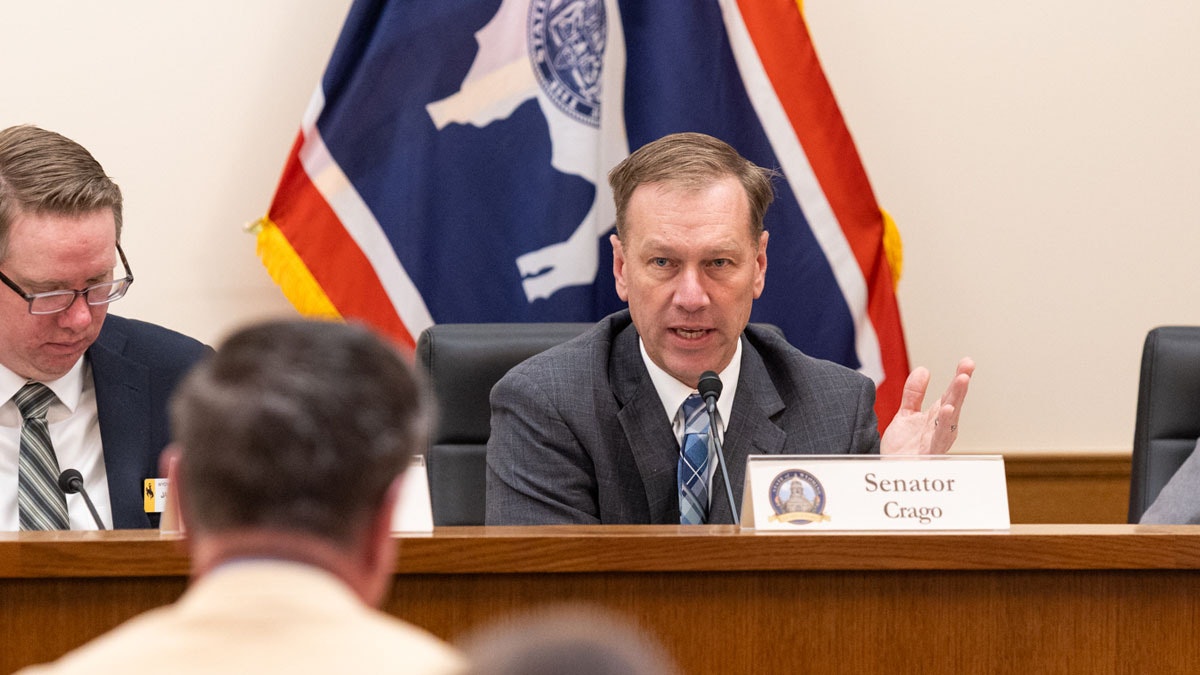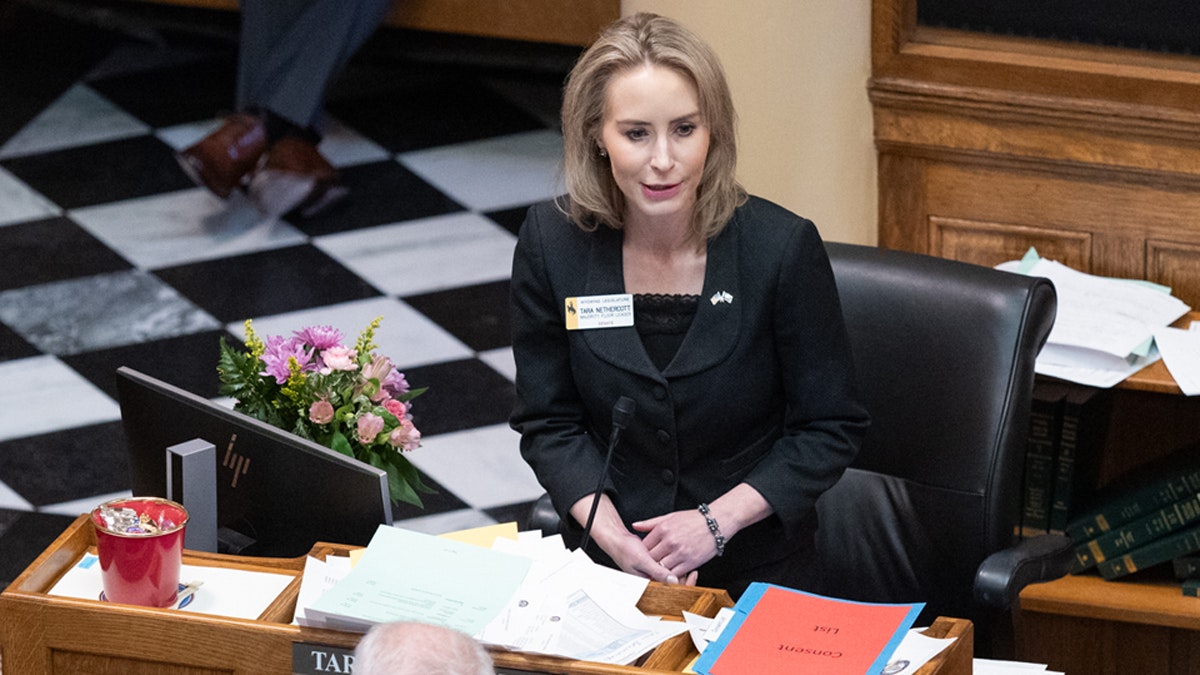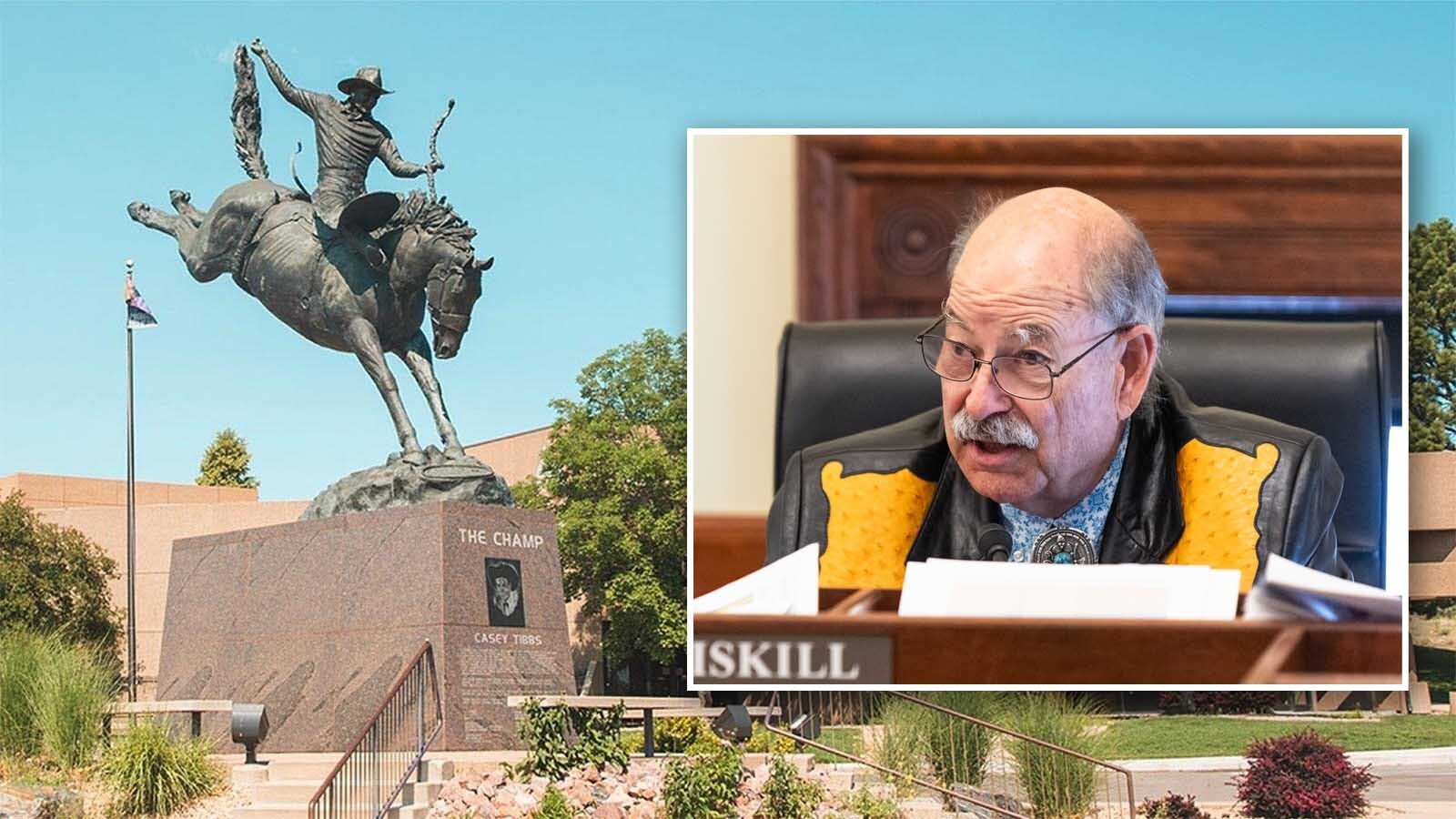Just as the Wyoming Republican party’s leadership settled one lawsuit, it lodged an argument in another.
Now, the Wyoming Republican Party, its State Central Committee, and its controversial Dispute Resolution Committee are slated to attend a June 10 scheduling conference in a lawsuit a handful of Hot Springs County Republican Party members filed against them last month.
The hearing date comes after the state party settled its 2024 lawsuit against Laramie County Clerk Debra Lee, over an allegedly inadequate test run of electronic voting machines in the run-up to that year’s election cycle.
The party and its co-plaintiffs dropped that case Friday.
Lee in a Saturday press release characterized that battle as a waste of time and money.
“Laramie County publicly retested its equipment on four occasions, each time without tabulation errors, proving the equipment was properly coded and accurately counting Primary Election votes,” wrote Lee in a Sunday statement. “This was likely the most tested equipment in the state of Wyoming and perhaps the nation.”
The settlement terms included the clerk’s office letting three people – “none of whom were from Laramie County – and a self-proclaimed ‘expert’ from out of state – to inspect documents previously offered by the Clerk’s office on several occasions,” wrote the clerk.
The party not responding to the clerk’s office’s earlier offers “needlessly dragged the case on” for months and resulted in $50,000 in taxpayer-dollar expense and hundreds of hours of work by the clerk’s staff, Lee added.
Lee wrote that this controversy threatened to jeopardize rather than help elections run efficiently, and she expressed a hope that the party’s new leadership would revive “Wyoming’s common sense.”
Newly-elected Wyoming State Republican Party Chair Bryan Miller – who was not chair during the initiation of either lawsuit – did not immediately return a Thursday voicemail request for comment.
The party, conversely, had alleged that Lee didn’t run the 2024 machine tests in accordance with the law, and refused to let concerned spectators see the computer system responsible for creating the machines’ test deck and the ballots inside it.
At the Laramie County test, controversy surfaced when many candidates were given the exact same number of votes for the machines to count. Wyoming Statute 22-11-104 says during these tests, a different number of valid votes shall be assigned to each candidate for an office, and for and against each measure.
The lawsuit claimed originally that Lee acknowledged the discrepancy and did nothing to correct it.
Laramie County conducted a re-test, but by then the lawsuit was ongoing.
First Amendment Versus Government Power Plays
As for the Hot Springs party members’ lawsuit, it revolves around whether the state party retains the “expressive association” right to choose its own ranks and members that the First Amendment promises to private groups – or whether the party exerts too much influence over Wyoming governance to enjoy that right.
A group of Hot Springs party members were stripped of newly-won officer roles after two allegedly ineligible voters submitted late ballots, and the state Republican Party Dispute Resolution Committee deemed those valid – changing the outcome of the county party’s elections.
Through Rock Springs-based attorney Clark Stith, the ousted members sued, saying the state party leadership can’t unilaterally declare its own ranks: it must adhere to its bylaws as state law requires, and the Wyoming Supreme Court’s 2023 finding that only the party’s precinct committeeman and precinct committeewomen may vote in county-level central committee elections for a major party.
The complaint Stith filed in Laramie County District Court on April 21 emphasizes that county party leaders comprise the state party’s leadership – which in turn plays an important role in Wyoming governance. The state party leaders nominate candidates to fill vacancies in statewide elected office, like governor or secretary of state.
That makes the party something less than a fully autonomous private group entitled to powerful First Amendment association protections, Stith argued.
Yeah, But
The state party in its response early last week countered and asked the court not to block its election maneuvers.
Stith and his clients were asking the court to upset the status quo of an already-settled election with no imminent harms associated with it (since a key meeting pitched as a vital, missed opportunity for the plaintiffs elapsed while the lawsuit was just getting started). If the Thermopolis party members are asking the court to upset the status quo, then they face a more difficult legal standard which they’ve not cleared, the state party argued.
Also, wrote the state party’s attorneys Caleb C Wilkins and Eve Sinkiewicz of Coal Creek Law, state law doesn’t curb the party’s rights. And one state law, which requires county party elections follow the party’s bylaws, is so “facially overbroad in violation of the First Amendment (that it) is void in its entirety,” says the state party’s counterargument.
Essentially, the state party contends that its First Amendment association right to determine its own ranks and membership trumps the law.
That Other Time
This isn’t the first time Wyoming has seen a headline-grabbing case revolve around a group’s latitude to associate as it wishes: The 2023 federal lawsuit in which a group of University of Wyoming-based Kappa Kappa Gamma sorority members sued the sorority anchored on that same right of association.
The women argued that the sorority had broken faith with them, interfered with their sorority housing agreements and was harming its own posterity by admitting a transgender member.
The sorority’s right of association as a private group overcame all of that, the federal judge ruled when dismissing the case.
The cases are not equal, however, as a section of state law specifically governs major political parties, in deference to the role they play in nominating political leaders.
Clair McFarland can be reached at clair@cowboystatedaily.com.





